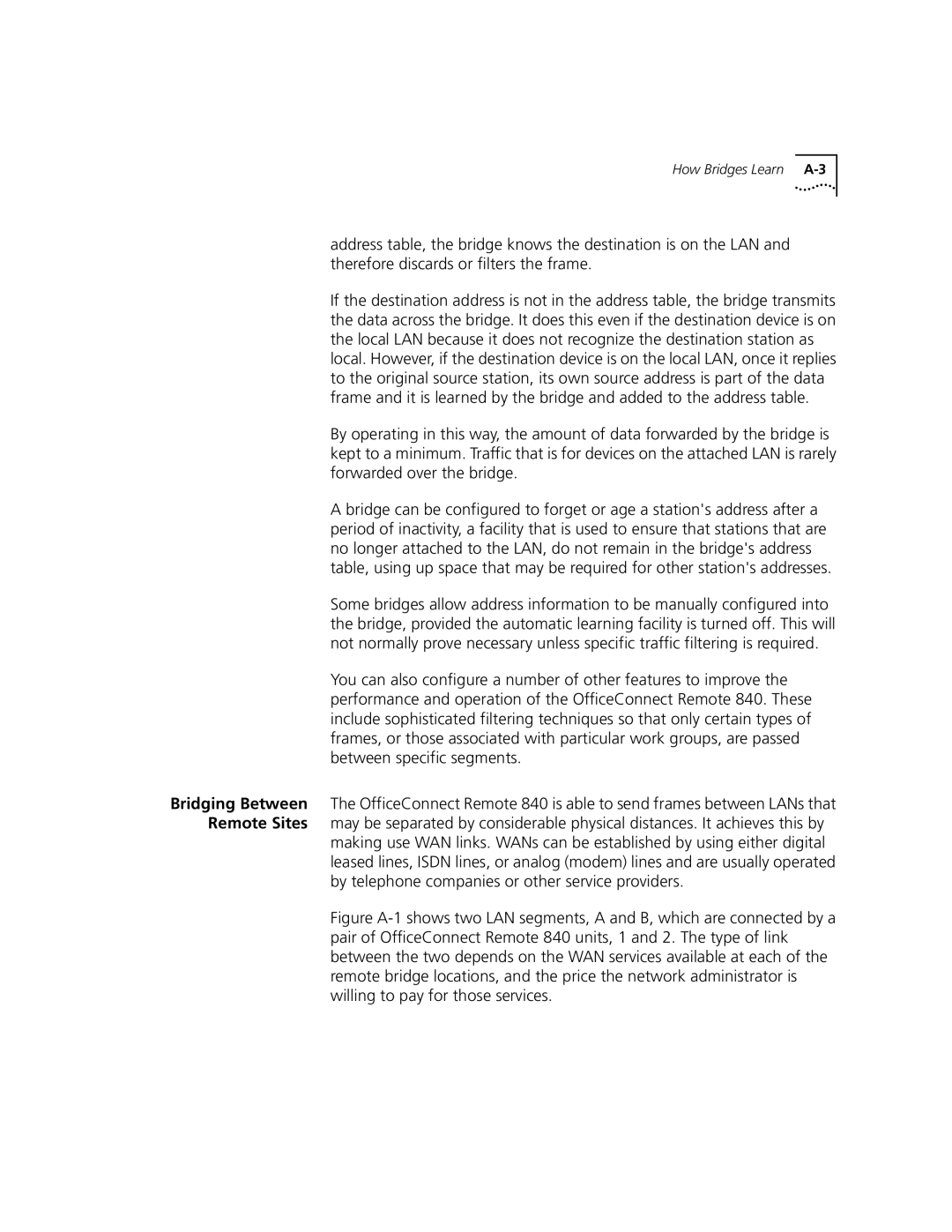How Bridges Learn A-3
address table, the bridge knows the destination is on the LAN and therefore discards or filters the frame.
If the destination address is not in the address table, the bridge transmits the data across the bridge. It does this even if the destination device is on the local LAN because it does not recognize the destination station as local. However, if the destination device is on the local LAN, once it replies to the original source station, its own source address is part of the data frame and it is learned by the bridge and added to the address table.
By operating in this way, the amount of data forwarded by the bridge is kept to a minimum. Traffic that is for devices on the attached LAN is rarely forwarded over the bridge.
A bridge can be configured to forget or age a station's address after a period of inactivity, a facility that is used to ensure that stations that are no longer attached to the LAN, do not remain in the bridge's address table, using up space that may be required for other station's addresses.
Some bridges allow address information to be manually configured into the bridge, provided the automatic learning facility is turned off. This will not normally prove necessary unless specific traffic filtering is required.
You can also configure a number of other features to improve the performance and operation of the OfficeConnect Remote 840. These include sophisticated filtering techniques so that only certain types of frames, or those associated with particular work groups, are passed between specific segments.
Bridging Between The OfficeConnect Remote 840 is able to send frames between LANs that Remote Sites may be separated by considerable physical distances. It achieves this by
making use WAN links. WANs can be established by using either digital leased lines, ISDN lines, or analog (modem) lines and are usually operated by telephone companies or other service providers.
